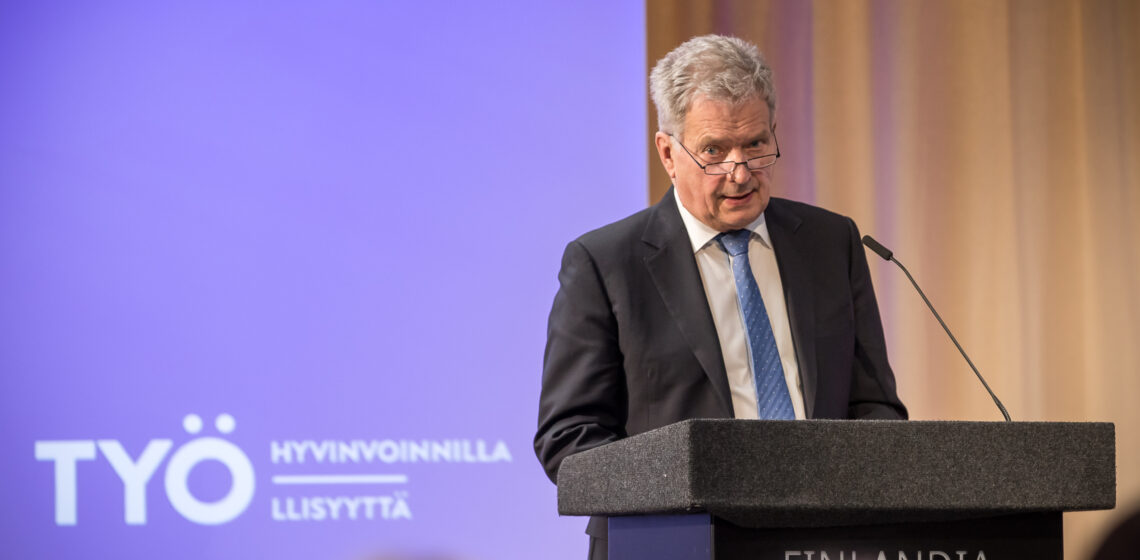Ladies and Gentlemen,
These past two years have in many different ways put us to the test. But this period has also shown our ability to act flexibly in challenging circumstances. It has also changed working life in many ways. We have had to rapidly change our activities and become accustomed to new routines as coronavirus afflicts our society. Over the past month, the scale of issues has again changed. Russia’s war of aggression in Ukraine has shocked the entire Western world. Amidst the sombre war news, the topics of discussion of many Finnish families, communities and workplaces have also changed.
We do not yet know everything about how the world-shaking events in Ukraine will affect Finland. We have to be prepared to adapt to rapidly changing conditions, and this affects us all.
We humans confront surprising changes in different ways. Even so, Finland’s traditional strengths have shown their force over and over again. Realism, responsiveness and the mental endurance supporting them will also be our strengths in the future.
In many work communities, leadership has changed into listening to people in recent weeks. To process new concerns and troubling issues. At the same time, there has emerged in Finland an even stronger community spirit, a desire to help those who are suffering. Aid groups, for example, have emerged in workplaces as well as in many social media communities. Our civil society is working in an exemplary way.
As the events of war fill the news streams, it is worth considering the effects of these events on the capacity of each of us to cope. Long-term stress affects our functional capacity, concentration at work and everyday lives. In these times, it is also wise to distance ourselves from events and devote time to ourselves and our loved ones. Everyday life continues and through its continuation, we also gain strength for adversities.
According to the Working Life Barometer just published by the Ministry of Economic Affairs and Employment, more than 80 per cent of wage and salary earners felt that their capacity to work was good in relation to the physical and mental demands of the work. The majority of respondents were confident they would find work corresponding to their skills and work experience in the event of unemployment. At the same time, however, it is necessary to take into account that a growing number of Finns consider that work has increased their mental stress. In recent years, absences due to mental disorders have increased, as has retirement on disability pensions.
Employment is also a security issue. A person with a job and future prospects is integrated into society. A community of such individuals is resilient and able to resist external disturbance. Work communities and actors involved in working life have an important role in society in this regard.
Everyday preparation for new threats is needed in various industries. Mental resilience also grows through ongoing education, the right spirit through appropriate training. Over the decades, Finland has been able to prepare. The period of our independence reflects the desire of Finns to defend their country and their ability to work together and for the common good. As individuals and as a nation, we are able to build a good future for Finland and, at the same time, contribute to the whole world.
I am convinced that better times are still to come. This will happen when together we safeguard our capacity for work and entrepreneurship. And together we will take Finland safely towards tomorrow.


